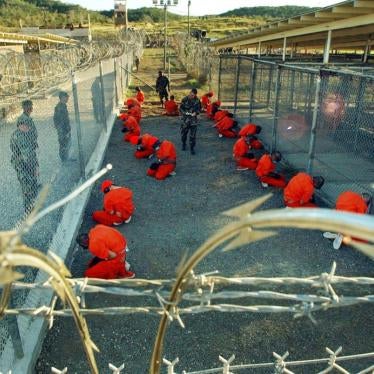Nearly a year after the first stories about National Security Agency (NSA) mass surveillance broke, Germany is at the forefront of international reforms. Along with Brazil, Germany sponsored a UN resolution that was the first major UN statement on the right to privacy in 25 years. Angela Merkel is one of the strongest voices pressing the US on the need for reform. Germany expanded the Department of Cyber Politics at the Foreign office, established a Commissioner for the Federal Intelligence Services at the chancellery, and a commission of inquiry at the parliament.
These stories, and the reforms they spurred, were based on documents the former NSA contractor Edward Snowden put himself at great risk to expose. Yet Berlin still refuses to offer Snowden witness protection and a safe harbor in Germany.
The documents Snowden provided to journalists exposed pervasive US and UK government wrongdoing and violations of the right to privacy, and freedom of expression and association. Even President Obama acknowledged that the disclosures spurred much-needed public discussion of government surveillance.
But under US law, the publication of classified information is severely punished and national security whistleblowers are excluded from protection, regardless of how socially valuable their revelations may be. Snowden, who faces charges under the Espionage Act, would not be able to present a defense that the public interest served by his disclosure of classified information outweighs the harm resulting from the breach of secrecy. He would face the prospect of conviction on various federal charges that could consign him to decades in prison. The German government should have publicly condemned Washington’s statements about prosecuting him and tried to change its stubborn stance on this issue.
Germany is a member of the “Freedom Online Coalition,” a group of countries that have made a commitment to promote human rights on the internet. The credibility of at least two members of this coalition as champions of Internet freedom—the US and UK—has been deeply damaged by the NSA revelations and the aftermath. That is why Germany has taken over a leadership role for human rights online. In cooperation with Brazil, Germany is pressing other countries to carry out existing human rights obligations and prevent the arbitrary collection of data. This is important, but very difficult in light of the US and UK resistance.
In light of Germany’s willingness to take up the mantle for internet freedom, it is incomprehensible and paradoxical that our political leaders do not support having Snowden come to Berlin to testify as well as protecting him from extradition to the US. German-American relations play a major role in this decision of course, and the awareness that relations would be tested. However, the US should keep in mind that it has given political asylum to many people who had to face severe penalties for criticizing their country. Coming after a government that supported Snowden would be a clear sign that the US is applying double standards.
Governments should protect national security whistle blowers who expose information of important public interest and violations of the law/ Unfortunately, instead of protecting Snowden, the US has chosen to prosecute him. It’s a shame that someone who brought so much important information to light that benefits Germans as well as many other people worldwide is not getting the German government’s support.
Snowden’s current legal residence status in Russia expires in August. He did the world a great favor. The German government should acknowledge that by inviting him to Germany and accepting his asylum claim if he wishes to stay, not treating him like a criminal or a Typhoid Mary.
Wenzel Michalski is Germany director at Human Rights Watch








